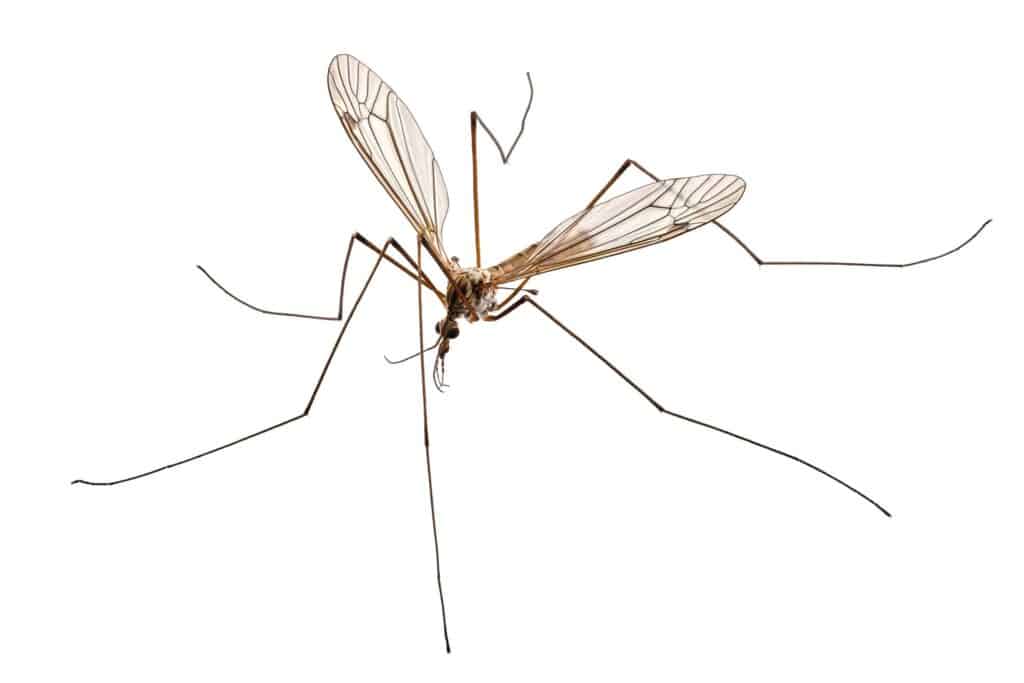Crane flies are everywhere right now. These elongated-winged insects are sometimes mistaken for large mosquitos, but are actually harmless and don’t bite or sting humans or animals. In the south, crane flies start appearing at the early signs of spring. The crane fly plays an important role in our ecosystem and while it can be a nuisance, there are ways to keep them at a distance.
Crane fly habits and reproduction
As adults, crane flies usually live between one week to one month and range in size from 5 millimeters to 50mm. During their short lifespan they feed mostly on nectar from flowers and other plant sap. Female crane flies can lay hundreds of eggs at a time, usually near standing water, along streams or other water sources, even large puddles. Once hatched, the larvae will mostly feed on plants and decaying matter – especially grass roots. The larvae have long bodies with six or fewer legs – making them fairly easy to spot in a garden or backyard.
Why crane flies are important
Crane flies are incredibly important to our ecosystem because they serve as both predator and prey. Adult crane flies feed on small invertebrates such as snails, worms and caterpillars, which helps keep those populations in check. They are also a reliable food source for birds that prey on insects. Crane fly larvae also play an important role by decomposing plant material and enriching the soil. Found near wetlands, puddles or anywhere after it rains, these harmless winged insects have an essential role in our ecosystem.
Controlling crane flies
Because crane flies breed near water and can fly, there are few options to fully eliminate them. The best way to control the crane fly population in your yard is to eliminate any standing water in buckets, toys, etc. Crane flies prefer damp areas, which is why they’re often seen more after a rain or on a morning with fresh dew on the grass. While they can seem a bit annoying, they are completely harmless and do not pose any significant threat to plants or flowers.
For more information about pest treatments, including mosquitos, contact an experienced and licensed pest control company, like United Pest and Turf so a trained technician can inspect the area.
What are crane flies in North Alabama and Southern Tennessee?
Serving North Central Alabama and South Central Tennessee
Limestone County
Ardmore
Home » What are crane flies?


